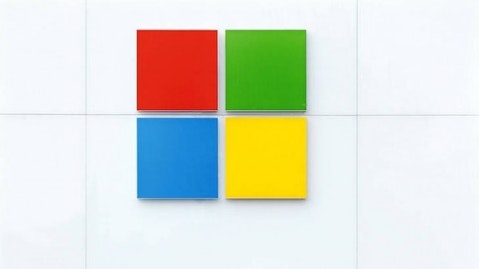Where’s the buzz around the electronics industry lately? Smartphones no longer wow consumers, the PC refresh cycle gets longer every year, and even advancements in 3-D TV technology have been met with a yawn. Have we finally reached the point where electronics devices are “good enough” and people will stop paying extra for the latest and greatest? There’s plenty of evidence this is already happening.
PC refresh cycle gets longer
Remember 10 to 15 years ago, when two years between new PCs was a long time? Today, going, three, four, or even five years before refreshing PCs is common, and it’s having a huge effect on the industry. In 2012, PC sales fell 3.5% and are down 14% so far in 2013, hurting sales for giants such as Microsoft Corporation (NASDAQ:MSFT) and Intel Corporation (NASDAQ:INTC).
Some of the decline sales is due to the preference for tablets, but a big driver is the fact that people simply don’t need to pay for higher speeds anymore. Unless you’re a hardcore user, you could probably get by running Microsoft Corporation (NASDAQ:MSFT) Word and an Internet browser with a five-year-old computer today. Intel Corporation (NASDAQ:INTC)’s latest and greatest chips are no longer a big draw for consumers, either, because there’s not a very discernible difference in performance for the vast majority of users.
For example, I recently replaced a four-year-old Mac with a new Retina Display Mac complete with Flash memory, a top-of-the-line computer. It’s better — there’s no doubt about that — but it’s not life-changing. A decade ago, a four-year-old computer would have been a dinosaur. Now it’s just status quo, because computers are now just “good enough.”
iPhone 4 selling well
The most recent devices becoming “good enough” are smartphones. Apple Inc. (NASDAQ:AAPL)‘s iPhone unit volumes were up 7% in the most recent quarter, but iPhone sales were up only 3%. The difference can be accounted for by the popularity of the iPhone 4 and iPhone 4S, not the newest iPhone 5. Consumers aren’t seeing value in the newest iPhones, so they’re perfectly content buying a one- or two-year-old model.
The days of the free phone are back as well, something that was foreign when smartphones first arrived. Verizon Wireless is advertising the LG Spectrum 2, HTC 8X, and Droid Razr M for free on its homepage. Advertising free phones means people are more willing to accept what’s “good enough” and not pay up for the newest, most feature-laden devices.
3-D flops
The latest technology phenomenon to fall on its face was 3-D TV, and it’s just another example of consumers’ satisfaction with what they have. When HDTVs came out, consumers (including me) paid thousands of dollars for the biggest, flattest TVs we could find and paid extra to get an HD feed. The same can’t be said for 3-D TV, which was officially put on life support when ESPN dropped the format.
We could even extend the apathy for new TV technology to Blu-ray. Go to any electronics store, and you’ll see a bigger DVD section than a Blu-ray section, even though it’s been nearly a decade since Blu-ray was released. TV in 2-D HD or on DVDs is “good enough,” and consumers aren’t willing to pay extra for the next generation.
What it means for investors
When companies are wowing us with new products, it usually means high prices and high margins for product developers. When Apple Inc. (NASDAQ:AAPL) released the iPhone and iPad, it could charge a premium, and the same was true for Intel and Microsoft Corporation (NASDAQ:MSFT) when they were wowing us with better chips and operating systems a decade ago.
So if electronics have become more of a commodity, it will negatively affect margins at the electronics makers. There’s plenty of evidence that this is already happening.
AAPL Gross Profit Margin Quarterly data by YCharts
Over the past three years, even as the economy was improving, Apple Inc. (NASDAQ:AAPL), Intel, and Microsoft Corporation (NASDAQ:MSFT) have all seen a decline in gross margins.
Unless the consumer-electronics industry can wow customers again, I think the margin declines will continue slowly. Even low-end devices are functional for most users, and there’s no need to pay up for the best, which isn’t good for consumer-electronics stocks going forward.
The article Have Consumer Electronics Become “Good Enough”? originally appeared on Fool.com and is written by Travis Hoium.
Fool contributor Travis Hoium manages an account that owns shares of Apple Inc. (NASDAQ:AAPL), Microsoft Corporation (NASDAQ:MSFT), and Intel. The Motley Fool recommends Apple and Intel and owns shares of Apple, Intel, and Microsoft.
Copyright © 1995 – 2013 The Motley Fool, LLC. All rights reserved. The Motley Fool has a disclosure policy.







